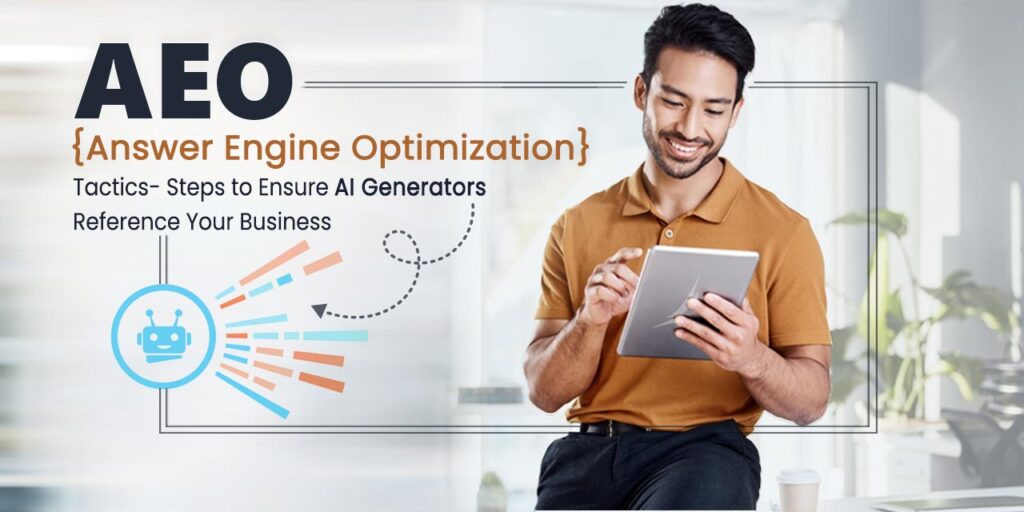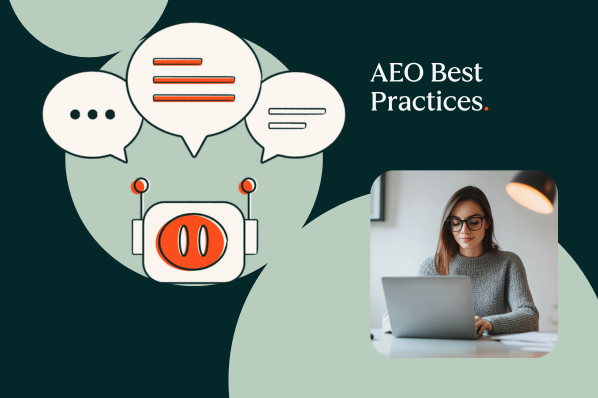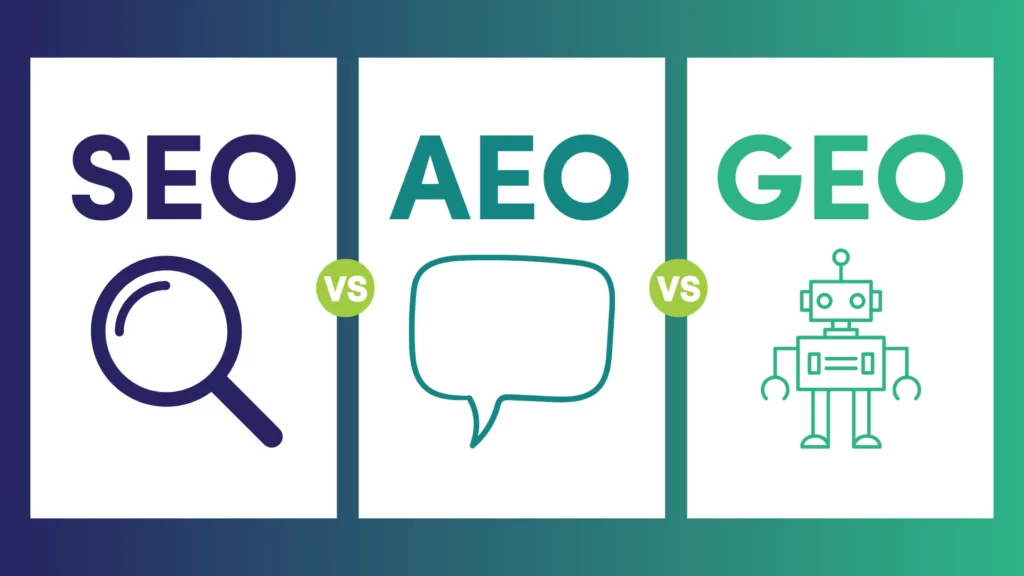What is Generative Engine Optimisation and Why Does It Matter?
Generative Engine Optimisation (GEO) is a modern SEO approach designed to make websites discoverable in AI-powered search environments that generate conversational, synthesized responses rather than traditional blue links. Unlike conventional SEO that focuses on ranking in static search results, GEO targets visibility within AI-driven platforms that create dynamic answers by pulling information from multiple sources.
How Does GEO Differ from Traditional SEO?
Traditional search engines display a list of ranked web pages matching your query. AI-driven search platforms like Google Search Generative Experience (SGE) and ChatGPT generate comprehensive answers by synthesizing information from various sources into a single, conversational response. This fundamental shift means your content needs optimization not just for ranking, but for selection and citation by generative AI systems.
The Generative Engine Optimisation definition centers on three core principles:
- Discoverability: Ensuring AI systems can find and access your content
- Interpretability: Structuring information so AI can understand context and relevance
- Citability: Creating content worthy of being referenced in AI-generated responses
Which Platforms Use Generative AI for Search?
Google Search Generative Experience represents Google’s integration of generative AI directly into search results. When users perform searches, SGE can display AI-generated summaries at the top of results pages, synthesizing information from multiple websites into cohesive answers. This changes how users interact with search results—many may never scroll past the AI-generated summary.
ChatGPT and similar large language models function as alternative search engines for millions of users. People ask questions conversationally and receive detailed, synthesized answers. The latest versions can browse the web in real-time, selecting and citing sources they deem authoritative and relevant.
Other platforms implementing generative AI include:
- Bing Chat: Microsoft’s AI-powered search assistant
- Perplexity AI: A search engine built specifically around generative responses
- Google Bard: Google’s conversational AI interface
- Claude: Anthropic’s AI assistant with web search capabilities
How Do Top AEO Agencies in Sydney Implement GEO Strategies?
Top AEO Agency Sydney implements GEO through five core tactics that ensure businesses appear in AI-generated local search results. These strategies combine technical precision with location-specific content optimisation to capture both traditional search rankings and generative AI responses.
Targeting Precise Locations with Geo-Specific Keywords
Geo-specific keywords form the foundation of effective GEO implementation. Top agencies conduct granular keyword research that goes beyond city-level targeting to include suburbs, neighbourhoods, and even landmark-based search terms.
A Sydney-based law firm might target “family lawyer Parramatta CBD” rather than just “family lawyer Sydney”. This precision helps AI engines understand exact service areas and match businesses to hyper-local queries. Agencies analyse search patterns specific to Sydney’s geography, identifying how residents actually search for services.
The keyword strategy extends to:
- Suburb-specific long-tail keywords that match conversational AI queries
- Landmark-based search terms like “dentist near Circular Quay”
- Neighbourhood variations accounting for local terminology
- Service + location combinations that reflect natural language patterns
These keywords get woven throughout website content, meta descriptions, and structured data to signal relevance to AI systems processing location-based queries.
Optimising Google Business Profiles for AI Visibility
Google Business Profile optimisation serves as a critical signal for generative engines determining local relevance. An experienced AEO agency Sydney ensures every profile element communicates authority and accuracy to AI systems.
Complete profile optimisation includes selecting the most specific business categories available, as AI engines use these to understand service offerings. A restaurant might choose “Modern Australian Restaurant” over the generic “Restaurant” category.
Profile elements requiring attention:
- Business description written in natural language that answers common customer questions
- Service listings with detailed descriptions matching search intent
- Regular posts demonstrating active engagement and current information
- High-quality images with descriptive file names and alt text
- Accurate business hours including special hours for holidays
Review management becomes essential, as AI engines evaluate review sentiment, recency, and response patterns when determining trustworthiness. Agencies implement systems for optimising review management which play a critical role in enhancing a business’s online reputation.
What Role Does Answer Engine Optimisation Play in GEO?
Answer Engine Optimisation serves as the bridge between traditional location-based visibility and AI-powered search responses. While GEO positions businesses geographically, AEO ensures the content itself becomes the preferred source for AI assistants when generating answers about local services, products, or expertise.

How Does AEO Target AI Assistants and Featured Snippets?
AEO transforms content into digestible, structured information that AI systems can extract and present directly to users. AI assistants like Siri, Alexa, and Google Assistant don’t send users to websites—they read answers aloud or display them as featured snippets at the top of search results.
The optimisation process focuses on three core elements:
- Direct answer formatting: Placing clear, concise responses within the first 40-60 words of content
- Question-based headings: Structuring content around specific queries users actually ask
- Snippet-worthy formatting: Using numbered lists, bullet points, and tables that AI can easily parse
When a Sydney-based business optimises for “best coffee roasters near me,” AEO ensures the content provides an immediate, quotable answer rather than burying information in lengthy paragraphs.
What Structured Data Techniques Support Answer Engine Optimisation?
Structured data markup acts as a translation layer between human-readable content and machine understanding. Two schema types prove particularly valuable:
FAQ Schema allows businesses to mark up common questions and answers directly in their HTML. When implemented correctly, search engines can pull these Q&A pairs into rich results, voice responses, and AI-generated summaries. A Sydney restaurant might mark up questions like “Do you offer gluten-free options?” or “What are your opening hours?” to appear in voice search results.
How-To Schema structures step-by-step instructions in a format AI assistants can read sequentially. Service-based businesses benefit significantly—a plumbing company explaining “How to fix a leaking tap” with properly marked-up steps becomes the authoritative source for voice assistants answering that query.
The technical implementation requires adding JSON-LD code to web pages, but the visibility gains justify the effort. Pages with structured data receive preferential treatment in
How Do GEO and AEO Together Shape Modern SEO Practices?
The combination of Generative Engine Optimisation and Answer Engine Optimisation creates a comprehensive framework that addresses both geographical relevance and query-specific responses. This combined SEO strategies approach ensures businesses maintain visibility across traditional search results, AI-generated answers, and voice-activated queries simultaneously.
The Synergy Between Location and Answer Optimisation
GEO targets where users search from and for, while AEO focuses on how AI systems understand and deliver answers. When implemented together, these strategies create a dual-layer optimisation that captures both local intent and informational queries. A Sydney-based dental clinic, for example, benefits from GEO by appearing in “dentist near me” searches while AEO ensures their content answers specific questions like “what causes tooth sensitivity” in featured snippets.
The integration works because modern search queries often contain both location and question elements. Users don’t simply search for “plumber”—they ask “how much does emergency plumbing cost in Sydney’s Eastern Suburbs.” Combined SEO strategies address this complexity by optimising for geographical signals while structuring content to answer the underlying question clearly.
AI Optimisation: The Technical Foundation
AI optimisation (AIO) serves as the technical backbone connecting GEO and AEO efforts. This discipline focuses on making content machine-readable through proper HTML semantics, structured metadata, and clean code architecture. Search engines and AI assistants rely on these technical signals to understand, categorise, and retrieve information accurately.
Key AIO implementation elements include:
- Semantic HTML5 tags (article, section, nav, aside) that define content hierarchy
- JSON-LD structured data for enhanced context
- Meta descriptions optimised for natural language processing
- Header tag hierarchies that reflect logical content flow
- Alt text and image metadata for comprehensive content understanding
When AI systems crawl websites with proper semantic markup, they extract information more efficiently. This technical precision directly impacts how generative AI platforms like Google’s SGE or ChatGPT reference and cite sources. Websites with clean, well-structured code appear more frequently in AI-generated responses because the systems trust the accuracy of the information architecture.
First-Party Content Authority
Authoritative first-party content represents original information published directly by
Why Should Businesses Partner with a Top AEO Agency in Sydney for GEO?
Can businesses effectively implement GEO strategies without professional help? While basic SEO tactics remain accessible to most businesses, the complexity of Generative Engine Optimisation demands specialized expertise that only experienced Sydney AEO experts can provide. The technical requirements, constant algorithm updates, and nuanced understanding of AI-driven search environments make professional guidance essential for meaningful results.

What Technical Expertise Do Professional Agencies Bring?
How do agencies combine technical SEO with content structuring? Professional agencies master the intersection of technical implementation and content strategy, ensuring websites speak the language AI systems understand. They implement sophisticated schema markup that goes beyond basic structured data, creating comprehensive knowledge graphs that position businesses as authoritative sources.
Sydney AEO experts approach this integration systematically:
- Advanced HTML semantics: signaling content hierarchy and relationships to AI crawlers
- Metadata optimization: specifically calibrated for machine learning algorithms
- Structured data implementation: across FAQ, How-To, Local Business, and Organization schemas
- Technical audits: identifying barriers to AI comprehension and indexing
The benefits of professional SEO agency partnerships become evident when examining content architecture. Agencies structure information in layers that satisfy both human readers and AI parsers, using proper heading hierarchies, semantic HTML5 elements, and JSON-LD formatting that generative engines prioritize. Click here to get how an AEO SEO Agency builds authority across ChatGPT, Gemini, and Perplexity.
How Do Proven Strategies Adapt to AI Algorithm Changes?
What makes agency strategies more resilient to search evolution? Top agencies monitor AI search pattern changes daily, adjusting tactics before algorithm shifts impact client visibility. Their experience across multiple industries provides pattern recognition that individual businesses cannot replicate, allowing proactive rather than reactive optimization.
Agencies track emerging signals in generative search environments:
- Citation patterns: in AI-generated responses
- Source attribution: preferences across different query types
- Content freshness: requirements for time-sensitive topics
- Entity recognition: accuracy and disambiguation needs
This vigilance translates into local business visibility that persists through platform updates. When Google’s SGE or ChatGPT modify their information retrieval methods, professionally managed sites maintain prominence because their foundation aligns with core AI principles rather than temporary




